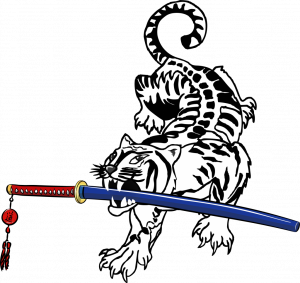The LinkedIn article written by James Citrin titled The No. 1 Lesson from Navy SEALs: ‘Don’t Quit in Anticipation of Future Failure’ had a couple good items for martial artists.
The article presents a response to the question of why SEAL candidates succeed. The former commander of SOCOM stated
“First he explained the attributes, which while important, aren’t inherently different from any other discussion of success. The standout SEALs are driven, have focus, always want to be better, are problem solvers who look at things from different angles… But the light bulb went on when Admiral Olson talked about a study that the SEALs did a few years ago to try and understand this very question. The Navy knew well that most of the qualified and motivated candidates who started the SEAL training didn’t finish. Most quit and they wanted to know when and why.
It turned out that the vast majority didn’t quit when they were out braving the cold, wet or otherwise inhospitable conditions. They didn’t quit in the middle of the demanding and stressful exercises. Most quit over breakfast or lunch. They quit in anticipation of the difficult conditions to come. They self-eliminated, not because they didn’t have the abilities to perform the tasks, but because they feared that the coming challenges would be too difficult and they would then fail (and fail in front of their classmates).”
 This also illustrates most quitting in everyday life. Once the thought “I can’t do that.” appears, many head downhill from there. If you fear failing, then you will always fail (or at least never succeed to the level that you are capable). This follows the concept that successful people avoid negativity.
This also illustrates most quitting in everyday life. Once the thought “I can’t do that.” appears, many head downhill from there. If you fear failing, then you will always fail (or at least never succeed to the level that you are capable). This follows the concept that successful people avoid negativity.
Your martial arts training can be taken just as seriously (but without having missions that risk lives) and be used to succeed. The article added
“…But they also learned that the competitive athletes who also excelled as chess players were three times as likely to graduate as those who didn’t play chess.
“Chess players are always thinking two or three moves ahead,” Admiral Olson explained. “They are not concerned with the current predicament, they are less emotional, less knee-jerky, and are always thinking about longer term problem solving. Put another way, chess players don’t quit over breakfast or lunch.”
Make sure that you don’t quit before you have the chance to prove yourself. This will hold true in academics and your career beyond your possible need for personal protection. The article concludes with
“Use our power of choice to decide that we can make it through even the most challenging times… and you know what? We will probably be right. Or to quote Henry Ford, “Whether you think you can or think you can’t, you’re right.”
Author: Master Robert Frankovich
As you read and enjoy the posts on this site, please consider “sharing” them! The “likes” help generate additional readership but “sharing” will help even more! Thank you for your assistance!
If you have questions, please feel free to contact me!


